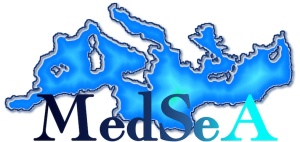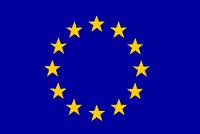The European Mediterranean Sea Acidification in a changing climate (MedSeA-project.eu) initiative is a project funded by the European Commission under Framework Program 7. A main aim is to identify where the impacts of acidification on Mediterranean waters will be more significant, taking into account the sequence of causes and effects, from ocean chemistry through marine biology to socio-economic costs. It is focusing on a selected set of key ecosystem and socio-economic variables that are likely to be affected by both acidification and warming, studying the combination of both effects through ship-based observations, laboratory and mesocosm experiments, physical-biogeochemical-ecosystem modeling, and economical analyses.
In this context, a large scale mesocosm experiment focusing on the study of the simultaneous impact of warming and acidification on the planktonic food web is planned for late summer 2013. This experiment will take place between August 26th and September 20th 2013 at the mesocosm facilities of HCMR in Crete, recently upgraded for this purpose.
Warming and acidification of the oceans are two major drivers of climate change. The impact of increased CO2 on the pelagic ecosystem has been recently studied in mesocosm experiments, however the simultaneous impact of CO2 and temperature increase can only be studied in land based facilities where temperature can be regulated. The mesocosm facilities of HCMR in Crete are one of few facilities of the kind and are the only ones providing the possibility to study such phenomena in real oligotrophic conditions due to the position of HCMR site in the Eastern Mediterranean.
During the forthcoming experiment, two different pCO2 (present day and predicted for year 2100-7.83) will be applied in triplicate mesocosms of 3 m3. This will be tested in two different temperatures (ambient seawater T and ambient T plus 3oC). Twelve mesocosms in total will be studied and they will be incubated in two large concrete tanks, one of which was constructed for the needs of this experiment. Temperature will be controlled by sophisticated, automated systems.
A large variety of chemical, biological and biochemical variables will be studied, including salinity, temperature, light and alkalinity measurements, inorganic and organic, particulate and dissolved, nutrient analyses, biological stock (Chla concentration, enumeration and community composition of microbial, phyto- and zooplankton organisms) and rate (primary, bacterial, viral production, copepod egg production, zooplankton grazing, N2 fixation, P uptake) measurements, bacterial DNA extraction and phytoplankton transcriptomics, calcifiers analyses.
Twenty three scientists from 6 Institutes and 5 countries will participate in this experiment which is expected to elucidate the impact of climate change on the pelagic food web, at the ecosystem level.
For more information, please contact: P. Pitta (vpitta@hcmr.gr, Hellenic Centre for Marine Research, Institute of Oceanography, Crete, Greece) or E. Krasakopoulou (ekras@hcmr.gr, University of Aegean, Department of Marine Sciences, Lesvos, Greece)



